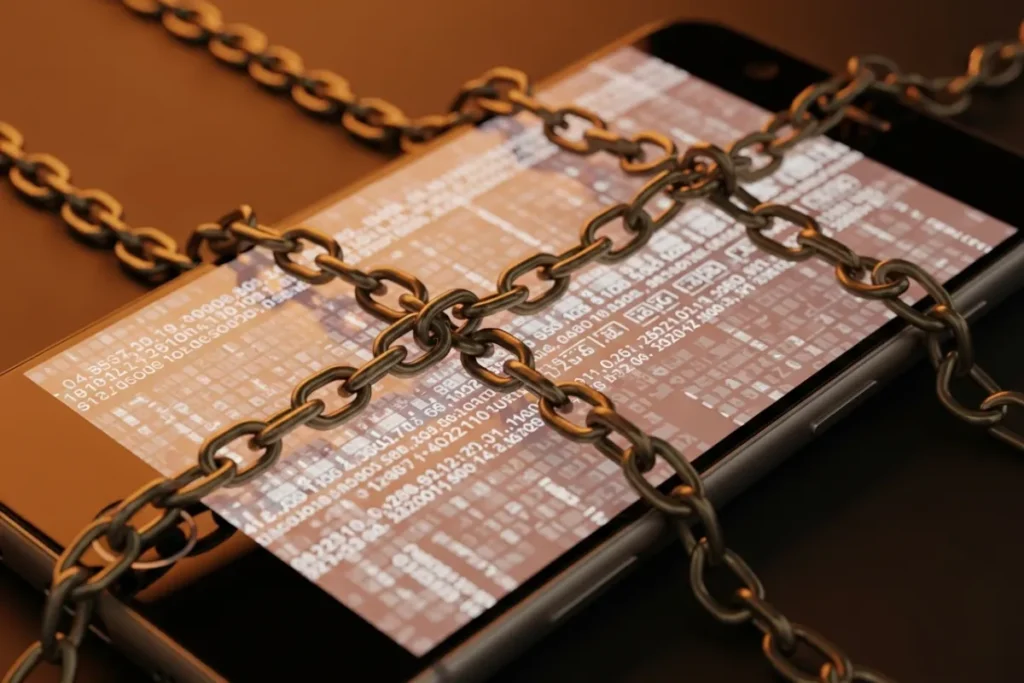Explore the multifaceted relationship between smartphones and society, addressing both their benefits and the challenges of smartphone addiction. This blog post delves into the history and evolution of mobile technology, the impact of social media, and the psychological effects of screen dependency. With practical strategies for moderation and insights into the future of smartphone interactions, learn how to cultivate a balanced approach to technology that enhances well-being while safeguarding personal connections.
Introduction: The Allure of Smartphones
The rise of smartphones has fundamentally transformed the way we interact, work, and navigate our daily routines. Today, these multifunctional devices are omnipresent, serving not only as communication tools but also as essential components of our productivity and social engagement. The allure of smartphones lies in their ability to connect individuals effortlessly, transcending geographical barriers and fostering relationships in real-time. As a result, they have evolved into indispensable instruments in the modern smartphone addiction society.
Moreover, smartphones facilitate a level of convenience previously unimaginable. Tasks ranging from online shopping and banking to scheduling and navigation can all be accomplished with just a few taps on the screen. This newfound convenience significantly enhances efficiency in both personal and professional spheres. As a reflection of the history of mobile technology, smartphones encapsulate a remarkable journey of innovation, culminating in devices that cater to nearly every aspect of daily life.
However, this convenience also comes at a price. The very traits that make smartphones desirable can contribute to a screen dependency culture, resulting in behaviors that suggest many users may be trapped in a digital prison psychology[1]. The persistent notifications, social media demands, and entertainment options available contribute to an environment where individuals may find themselves increasingly reliant on their devices, often at the expense of face-to-face interactions and mental well-being. This double-edged sword of technology underscores the complex relationship between tech and human behavior, suggesting that while smartphones enhance our lives, they also pose certain risks that warrant careful consideration.
The Evolution of Smartphones
The history of mobile technology dates back several decades, but it was the advent of smartphones that truly transformed communication, leisure, and work in today’s digital society. The journey began in the early 1990s with the introduction of devices like IBM’s Simon Personal Communicator, which integrated features of a PDA and a mobile phone. This marked the initial step towards a smartphone addiction society where devices could perform more than mere voice calling.
As technology progressed, the early 2000s saw the emergence of more sophisticated models, such as the BlackBerry and Palm Treo, which facilitated email and wireless internet access. These devices began to shift cultural norms, laying the groundwork for what would later evolve into a pervasive screen dependency culture. The introduction of Apple’s iPhone in 2007 served as a turning point in the history of smartphones, as it provided a user-friendly interface with a touch screen, enabling extensive app usage and web browsing capabilities. This ushered in an era where tech and human behavior shifted dramatically, transforming smartphones into essential tools of daily life.
Following the iPhone, Android devices emerged, creating competition and further accelerating innovation in smartphone technology. Companies like Samsung positioned themselves as key players in the industry, with each new release adding features such as improved cameras, faster processors, and longer battery life, catering to the insatiable demand for more functionality. This evolution not only enhanced convenience in communication but also contributed to the concept of digital prison psychology, where users find themselves increasingly reliant on their devices for social interaction and information access.
In recent years, the proliferation of smartphones has raised questions about the consequences of this technology. The ease of access to information and social networking has fostered an environment conducive to addiction, illustrating how advancements in mobile technology have fundamentally altered social norms and behaviors. As we continue to navigate this digital landscape, understanding the evolution of smartphones is crucial for addressing the challenges of a society entangled in a web of screen dependency.

The Benefits of Smartphone Usage
Smartphones have fundamentally altered the way individuals interact with the world around them, providing a myriad of advantages that address both personal and professional needs. One of the most significant benefits is instant communication. This capability facilitates real-time interaction across vast distances, allowing users to stay connected with family, friends, and colleagues. Through various applications, such as messaging apps, social media, and email, individuals are able to maintain relationships and collaborate effectively, regardless of geographical boundaries.
Moreover, smartphones serve as powerful portals to information. In the contemporary digital prison psychology, the ability to access a wealth of knowledge at one’s fingertips plays a crucial role in daily life. Users can easily research topics, read news, and access educational resources, fostering a culture of continuous learning and awareness. This ready access to information not only supports personal development but also enhances professional capabilities, allowing individuals to stay informed and competitive in their respective fields.
Additionally, the wide array of applications available on smartphones caters to a variety of tasks and interests, significantly improving efficiency in everyday activities. From organizing schedules with calendar apps to managing finances with budgeting tools, smartphones streamline complex processes, making them easily manageable. Furthermore, these devices enhance recreational activities, offering entertainment through games, streaming platforms, and social networking applications. In this screen dependency culture, such recreational benefits contribute to the overall enjoyment of life while also serving as vital stress-relief mechanisms.
As we delve deeper into the history of mobile tech, it becomes evident that the positive impact of smartphones extends beyond individual users; it shapes societal norms and expectations. While it is essential to remain cognizant of the drawbacks associated with smartphone addiction society, acknowledging and appreciating the advantages of smartphone usage highlights the multifaceted role these devices play in our daily lives.
The Dark Side of Connectivity
In the modern smartphone addiction society, the pervasive use of these devices has raised significant concerns regarding mental health and social interactions. The reality is that many individuals are experiencing profound consequences due to their dependency on smartphones. According to various studies, excessive smartphone use alters human behavior, leading to new forms of addiction characterized by a compulsive need to check notifications, scroll through social media, or engage with content at the expense of real-world interactions.
A crucial point of concern is the impact on mental health. Research indicates that high smartphone usage correlates with increased levels of anxiety and depression. A study conducted by the Pew Research Center found that nearly 60% of participants reported feeling overwhelmed by the pressures of being constantly connected. This “digital prison psychology” effectively confines users to their devices, limiting opportunities for personal growth and real-life engagements necessary for emotional well-being.
Moreover, the erosion of face-to-face communication skills is an alarming outcome of our screen dependency culture. The subtleties of human interaction, such as non-verbal cues and empathy, often diminish in digital exchanges. A report indicated that young adults, who are the most connected generation in history, report feeling lonelier than any previous generation. This startling juxtaposition reveals how technology, far from bridging gaps, can exacerbate feelings of isolation and disconnect.
In essence, while smartphones have revolutionized the way we communicate and access information, their negative implications cannot be overlooked. The history of mobile technology shows that every advancement comes with a price, often impacting tech and human behavior in unpredictable ways. As we continue navigating this digital landscape, it is imperative to recognize and address the darker aspects of connectivity that contribute to our collective psychological struggles.

Smartphones as Tools of Surveillance
Smartphones have revolutionized the way we communicate and interact with the world around us. However, they also serve as potent tools of surveillance that contribute significantly to the growing concerns surrounding privacy in our digital age. The pervasive nature of smartphones allows for an extensive collection of personal data, including location tracking, which many users often overlook. This aspect has given rise to what some experts refer to as the “screen dependency culture,” where convenience often overshadows privacy awareness.
The history of mobile technology has seen rapid advancements, yet these improvements often come with hidden costs. As smartphone features have expanded to include high-resolution cameras, various applications, and location services, the potential for surveillance increases. Each time a user engages with their device, particularly through social media or navigation applications, they unwittingly contribute to a growing database of behavioral patterns, preferences, and personal information. These data points are not only instrumental to app functionality but also serve as commodities within a broader tech ecosystem focused on monetization.
In this digital prison psychology, the trade-off between convenience and privacy becomes evident. While many individuals appreciate the ability to stay connected and access information at their fingertips, they may not fully comprehend the implications of sacrificing their personal privacy. Companies often invoke user consent as a shield, providing lengthy terms and conditions that are rarely read in detail. Thus, users inadvertently accept that their data will be tracked and utilized for various purposes, from targeted advertising to data analysis.
In conclusion, understanding the privacy implications of smartphone usage is critical as this technology continues to shape our society. The balance between enjoying the benefits of mobile tech and safeguarding personal information remains a challenging endeavor in the era of near-constant surveillance.
The Impact of Social Media on Smartphone Addiction
Social media platforms play a pivotal role in the prevalent smartphone addiction society, manipulating digital behaviors and intensifying reliance on mobile devices. The design of these platforms often includes notifications, likes, and shares, all crafted to generate user engagement and, consequently, prolonged screen time. Each notification serves as a psychological trigger, igniting an urge to check the smartphone frequently, thus reinforcing a cycle of dependency that resembles aspects of digital prison psychology.
As smartphones seamlessly integrate into daily routines, the ramifications of social media usage become increasingly evident. Callously addressing users’ emotions, platforms heighten the fear of missing out (FOMO), a significant driving force behind screen dependency culture. Users are constantly bombarded with updates about peers’ activities, leading to a compulsion to stay connected. The experience of seeing others’ curated lives on social media can induce feelings of inadequacy, pressing users to remain active on their devices to keep pace with societal standards, furthering their psychological attachments.
The organized notification systems designed by social media companies bolster this addiction even more. For example, the anticipation of receiving notifications can trigger dopamine releases, providing immediate gratification. Consequently, as individuals find themselves caught in this cycle, it becomes challenging to disconnect from their devices, thereby blurring the line between healthy tech use and excessive screen time. Additionally, the strategies employed by these platforms reflect a broader trend in the history of mobile technology, illustrating how tech and human behavior have evolved in ways that prioritize engagement over well-being.
Ultimately, the intertwining of social media and smartphone addiction illustrates a complex relationship that cultivates a dependency difficult to escape. By understanding this dynamic, individuals may be better equipped to navigate their relationship with technology critically and consciously.

Breaking Free: Strategies for Smartphone Moderation
As smartphone addiction has become increasingly prevalent in our society, finding effective strategies for moderation is essential. The overwhelming influence of mobile technology can lead many to feel as though they are trapped in a digital prison psychology, often resulting in a detrimental screen dependency culture. By implementing a few practical techniques, individuals can enhance their awareness of smartphone habits and regain control over their device usage.
Setting specific screen time limits is a foundational strategy for moderating smartphone use. Most smartphones now offer built-in features that allow users to track usage and enforce time restrictions on apps. Establishing daily limits can help individuals prioritize face-to-face interactions and engage more profoundly with their surroundings. It is crucial to approach these limits with a disciplined mindset, aiming towards a balanced use of technology without severe deprivation.
Participating in digital detoxes is another effective method to combat smartphone addiction. These periods of intentional disconnection, whether for a few hours, a day, or even a weekend, provide an opportunity to reflect on one’s relationship with technology. Engaging in activities that encourage physical engagement, such as outdoor recreation or hobbies, can help mitigate the urge to reach for a device constantly. Through these detoxes, individuals can reassess how mobile technology integrates into their lives and establish healthier boundaries.
Enhancing self-awareness around smartphone habits is vital for fostering a healthier tech and human behavior relationship. By assessing the contexts in which smartphones are used—such as boredom, loneliness, or the need for social validation—individuals can address the underlying psychological triggers that contribute to excessive screen time. Mindfulness practices, such as meditation or journaling, can aid in cultivating this awareness and promoting a more intentional approach to smartphone usage.
By employing these strategies—screen time limits, digital detoxes, and heightened awareness—individuals can take meaningful steps towards breaking free from the cycle of smartphone addiction that has permeated modern society.
The Future of Smartphones and Human Interactions
The trajectory of smartphone technology appears to be advancing at an unprecedented rate, with emerging innovations such as artificial intelligence (AI) and virtual reality (VR) set to reshape our interactions. As smartphone addiction in society grows, the implications of these technologies cannot be overlooked. The integration of AI into smartphones is expected to enhance user experience by personalizing interactions and offering timely assistance. While this may foster a sense of convenience, it raises critical questions about our dependence on digital devices and the dynamics of our relationships.
Moreover, VR technology offers immersive experiences that can simulate human interactions, allowing users to connect in virtual spaces. This could potentially address feelings of isolation, creating virtual environments where people can interact regardless of physical distance. However, this development also risks deepening the screen dependency culture, wherein individuals may prefer virtual connections over face-to-face interactions, leading to a disconnection from the real world. The psychology of digital prison can manifest when users prioritize their online presence to the detriment of their offline relationships.
Another factor influencing the future of smartphones is the evolution of mobile technology itself. As device capabilities expand, we may see an increase in features that encourage constant connectivity—an essential element of our current digital society. Yet, this relentless engagement could further entrench us within a cycle of smartphone addiction, ultimately impacting our mental health and social skills. The challenge will be to strike a balance between leveraging technology and preserving genuine human connections.
Consideration of these trends indicates that the trajectory of smartphones will likely lead us down a complex path. Emerging technologies have the potential to enhance human connections, but they also threaten to amplify isolation. In conclusion, the responsibility lies with society to navigate these advancements mindfully, ensuring technology serves to enrich human interactions rather than undermine them.
Conclusion: A Balanced Perspective on Smartphone Use
The exploration of smartphone addiction within society reveals a multifaceted relationship between individuals and their devices. Although it is not uncommon to refer to smartphones as a “golden prison,” offering an insight into the psychological implications associated with excessive use, it is also crucial to recognize their role as instrumental tools in our daily lives. The history of mobile technology is marked by rapid advancements, and as a result, smartphones have become integral to our personal and professional interactions, enabling instant communication and access to vast information.
In the context of digital prison psychology, the notion of screen dependency culture looms large. Many individuals find themselves entrapped in habitual patterns of checking notifications and scrolling through social media, driven by an innate compulsion to remain constantly connected. This behavior can significantly influence tech and human behavior on both an individual and societal level. It is essential to foster awareness regarding our digital interactions and the impacts they have on mental health, well-being, and interpersonal relationships.
However, it is vital to remember that while smartphones can create scenarios akin to a digital prison, they can also empower individuals to enhance productivity, learn new skills, and stay connected with loved ones. The challenge lies in striking a balance between utilizing these devices to their fullest potential and safeguarding oneself from the psychological traps they may impose. By promoting personal responsibility in technology usage, society can work towards mitigating the adverse effects of smartphone addiction while enjoying its many benefits. In conclusion, embracing a conscious approach toward smartphone engagement is crucial for maintaining a healthy relationship with technology that ultimately enriches our lives rather than hinders them.








